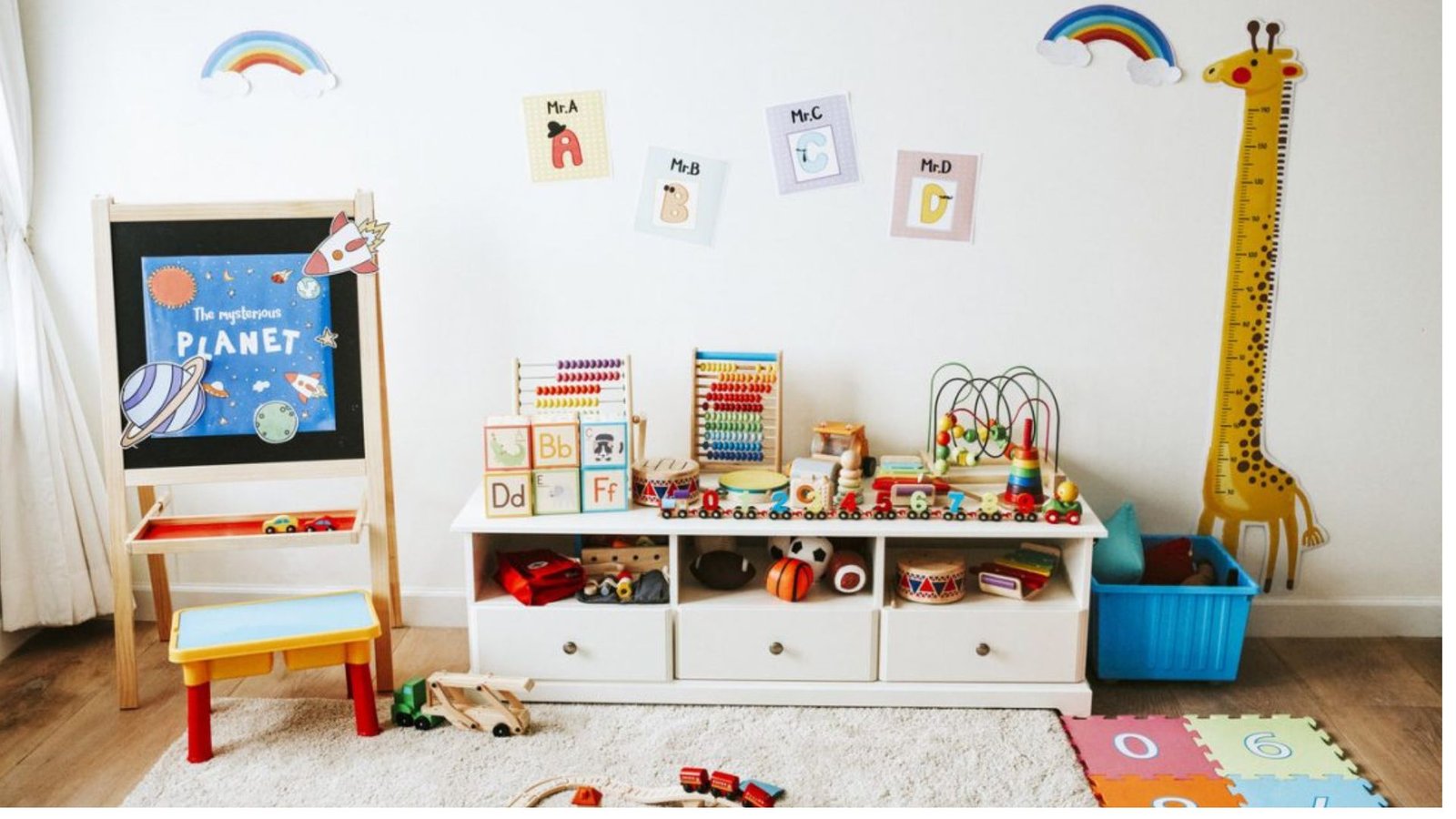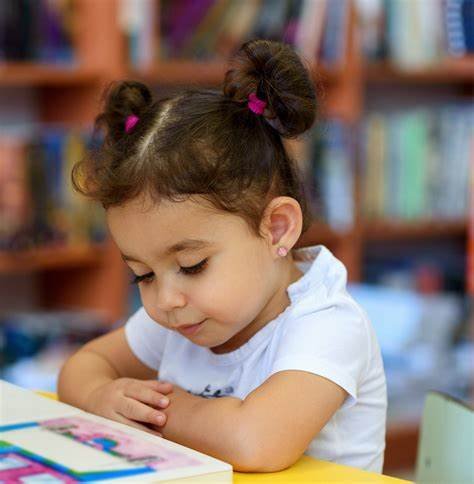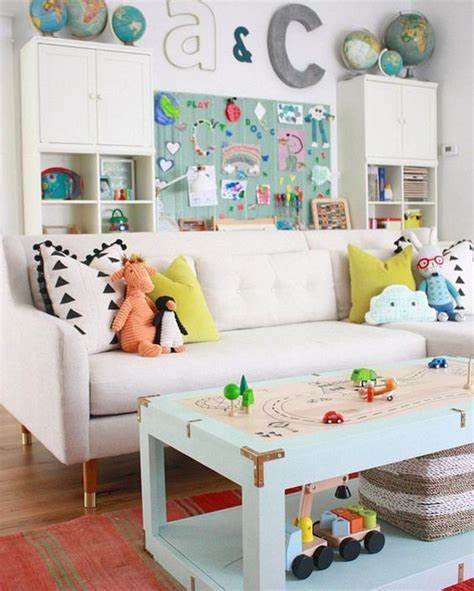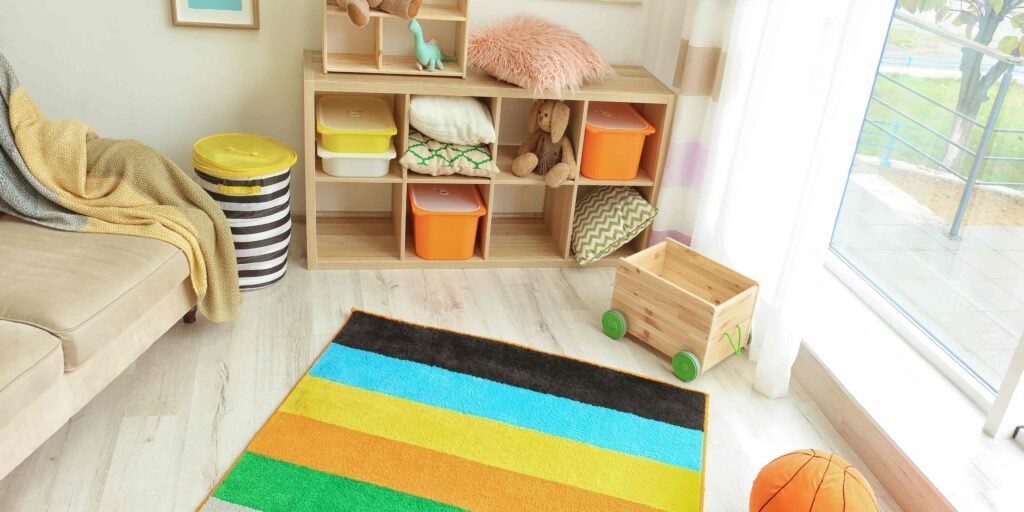Creating a play space that evolves with your children is a practical and enjoyable way to ensure the area stays functional, engaging, and fun as they grow. With a thoughtful approach, you can design a space that adapts to changing interests and developmental needs. Follow these tips to create a dynamic play area that grows alongside your child.
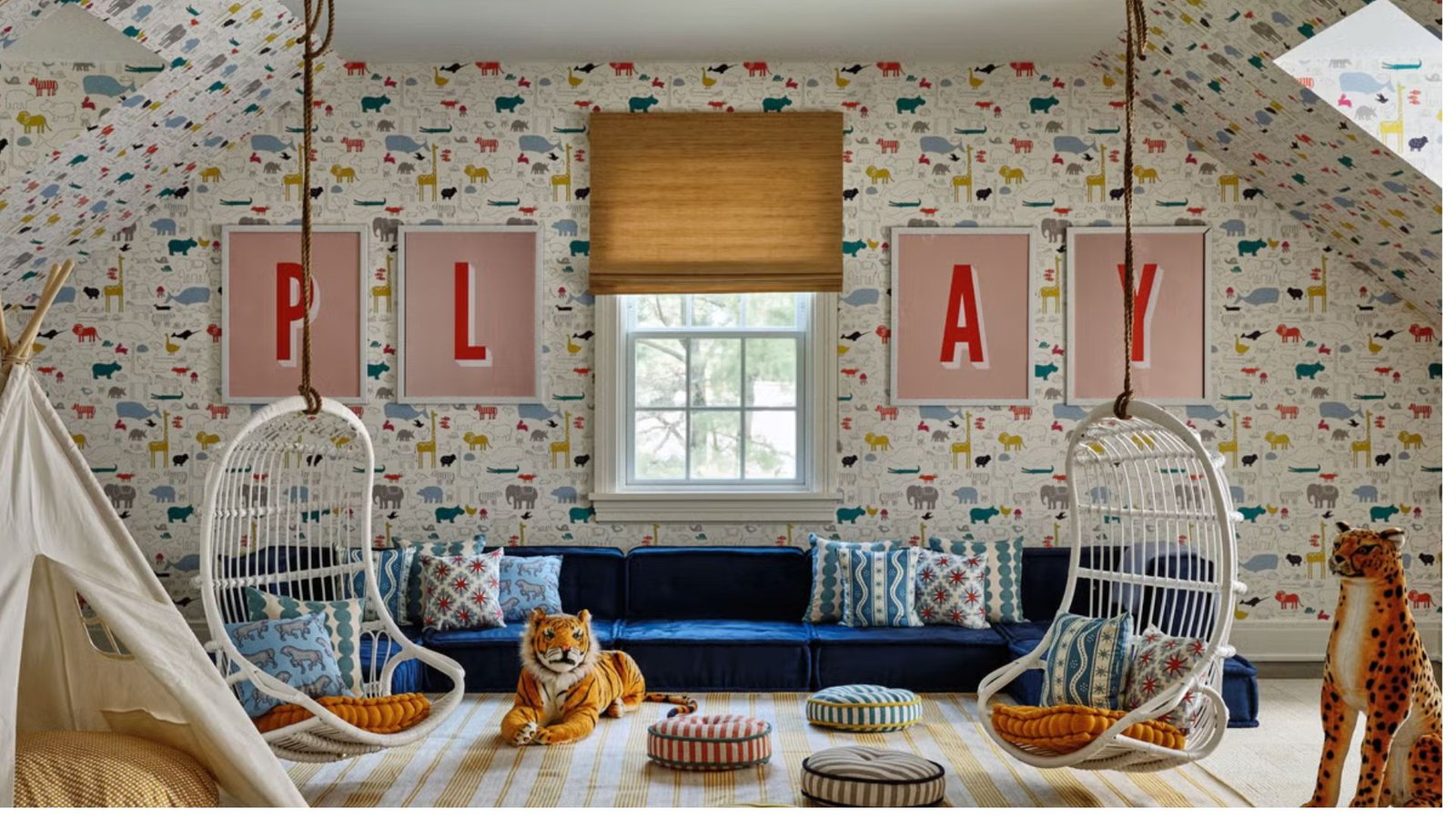
Start with a Flexible Layout
Designing a versatile layout is key to longevity.
- Open Floor Plan: Leave plenty of open space for various activities, from crawling and building to dancing and reading.
- Movable Furniture: Use lightweight or wheeled furniture that can be rearranged as needed.
- Defined Zones: Create designated areas for creative play, reading, and active play that can change over time.
A flexible layout provides room for new activities and hobbies.
Invest in Durable, Adjustable Furniture
Furniture that adapts to different stages of childhood ensures lasting value.
- Adjustable Tables and Chairs: Choose options that can accommodate both toddlers and older kids.
- Convertible Storage Units: Select shelves with adjustable heights or stackable bins for growing collections.
- Multi-Purpose Pieces: Consider items like ottomans with storage or foldable play tables.
Durable and adaptable furniture minimizes the need for replacements as your child grows.
Opt for Timeless Design Choices
A neutral foundation allows for easy updates.
- Neutral Walls and Flooring: Stick to versatile colors like beige, white, or gray.
- Interchangeable Decor: Use peel-and-stick wall decals or themed accessories that can be swapped out.
- Durable Materials: Choose wear-resistant finishes for floors and walls to withstand years of play.
Timeless design creates a space that’s easy to refresh as preferences change.
Prioritize Smart Storage Solutions
Keeping the play space organized ensures it remains functional over time.
- Labelled Bins: Use bins with labels or color codes to make cleanup simple.
- Hidden Storage: Opt for benches or ottomans with hidden compartments.
- Wall Storage: Install shelves or hanging organizers to save floor space and keep items accessible.
Smart storage solutions grow with your child’s interests and reduce clutter.
Incorporate Growth-Oriented Features
Include elements that encourage learning and development.
- Art and Craft Corner: Start with washable crayons and paper, then upgrade to painting supplies or sewing kits as they age.
- Bookshelves: Provide space for books of all reading levels.
- STEM Activities: Dedicate an area to science kits, building blocks, or puzzles.
Growth-focused features keep the space both fun and educational.
Create a Space for Imaginative Play
Imaginative play fosters creativity and evolves with your child.
- Play Kitchen or Workbench: Start with basic tools and accessories, adding complexity as skills grow.
- Costume Storage: Provide space for dress-up clothes and props for role-playing.
- Themed Play Zones: Use pop-up tents or modular structures that can transform into castles, shops, or spaceships.
A space for creativity keeps your child engaged through different stages of play.
Add Personal Touches
A personalized play space fosters ownership and excitement.
- DIY Decor: Let your child help create wall art, name signs, or other decorations.
- Photo Wall: Add family pictures or snapshots of your child’s favorite moments.
- Customized Themes: Incorporate their favorite colors, characters, or hobbies.
Personalization makes the space feel special and unique.
Final Thoughts
Designing a play space that grows with your kids is an investment in their happiness and development. By incorporating flexibility, durability, and thoughtful design, you can create a space that evolves with their interests and needs. Start planning today and enjoy watching your child flourish in their dynamic, personalized space.







